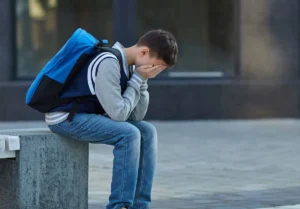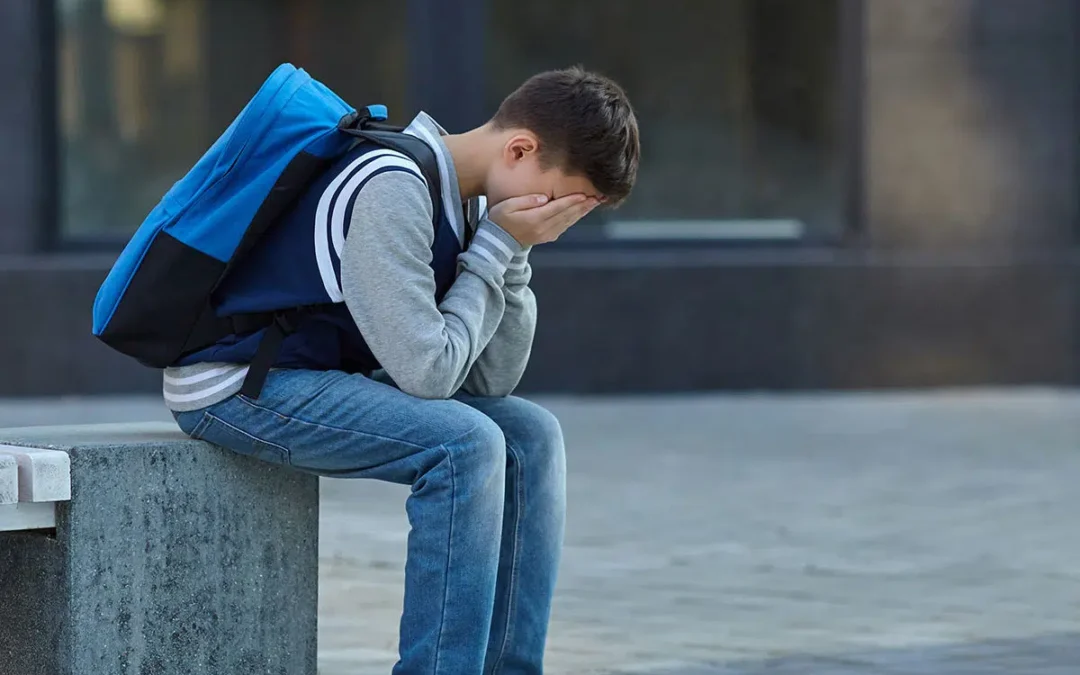People often make jokes about teens and their stormy emotions, but it’s no laughing matter. In fact, it’s difficult to distinguish between the rough seas that can come with puberty, and a more serious problem like depression. There’s a different texture to depression in teens, as opposed to adults. Where adults might isolate and sink into a long-lasting gloom, teens may lash out destructively. What’s more, during their teenage years, many people feel a natural instinct to pull away from their parents. This makes helping them a true challenge.
In today’s post, we’ll explore the unique nature of depression in teens, and steps you can take to help.
Table of Contents
Signs of Depression in Teens
Social Withdrawal

Increased Irritability
Where adults suffering from depression are more prone to anxiety and sorrow, teens often express their depression through outbursts of anger and frustration. To some extent, this may be a natural result of shifts in their body’s hormones, but it can also be a sign of deeper troubles they’re struggling to process.
Phantom Pains
Unlike adults, depression in teens is frequently associated with migraines, stomach aches, and other forms of physical discomfort. Often, there is no clear reason for these aches and pains, however, they are highly correlated with heightened levels of stress hormones such as cortisol.
Risk-Seeking Behavior
Many teens learn to self-medicate their depression with risk-seeking behaviors. It’s not uncommon for teens to turn to drugs and alcohol, sexual promiscuity, or other such behaviors as a means of temporary relief. This behavior is not necessarily a moral failing. Rather, it is a response to feelings of sadness, frustration, and helplessness.
Academic Struggles
Depression makes even the most mundane tasks seem insurmountable. This is especially true when it comes to academics. School can be a challenge at the best of times, but for a teen struggling with depression, it can feel impossible to get tasks turned in or finished on time.
How to Help
Open Communication
There’s little as scary or frustrating as having a teen who’s struggling with depression. It’s important to approach them with empathy rather than judgment. It’s crucial that they feel like they can communicate with you without worrying about your reaction. When dealing with your teen, practice active listening by asking questions and processing their responses. Don’t try to solve their problem or diminish their concerns; just give them room to speak.
In addition to emphasizing communication, some other ways you can help your teen include:
Relaxed Expectations
Depression flourishes in an environment of shame and guilt. As a result, it’s important to ensure that your teen knows they are loved, even when they feel like they’re falling short of expectations. Teens are under a tremendous amount of pressure to achieve academically, and conform socially. Rather than adding to those stresses, make yourself a safe harbor.
Check-Ins & Quality Time
Make sure to check in with your teen regularly about how they’re feeling and what they’ve been up to. If you’re having trouble getting them to talk, try engaging with them about their interests. Consider joining them on the couch to watch their favorite anime, or ask about the games they’ve been playing. You don’t need to share all your teens interests, but expressing curiosity is a good way to maintain and build a healthy connection.
Schedule an Appointment
It’s hard to know how to support the people in our lives when they’re struggling with depression. In serious cases, it may be necessary to seek out professional support. Depression is a sign of imbalance and dissatisfaction in our lives. It’s a call for change. I would love to help you and your teen learn to navigate these challenges with grace. Reach out to us to learn more about depression or teen therapy.


